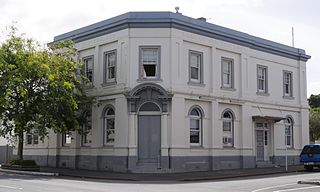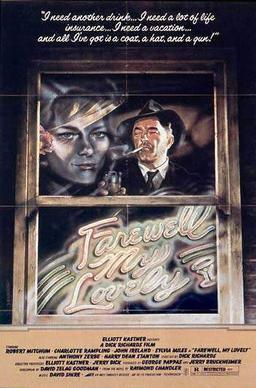
Brock Peters was an American actor and singer, best known for playing the villainous "Crown" in the 1959 film version of Porgy and Bess, and Tom Robinson in the 1962 film To Kill a Mockingbird. He made his Broadway debut in the 1965 Norman Rosten play Mister Johnson. He was nominated for a Tony Award and won a Drama Desk Award and an Outer Critics Circle Award for his lead role as Rev. Stephen Kumalo in the 1972 Broadway revival of the musical Lost in the Stars. He received the Screen Actors Guild Life Achievement Award in 1991 and a star on Hollywood Walk of Fame in 1992.

Flying Nun Records is a New Zealand independent record label formed in Christchurch in 1981 by music store manager Roger Shepherd. Described by The Guardian as "one of the world's great independent labels", Flying Nun is notable for bringing global attention to the Dunedin sound, a cultural and musical movement in early 1980s Dunedin.

John Stanley Body was a New Zealand composer, ethnomusicologist, photographer, teacher, and arts producer. As a composer, his work comprised concert music, music theatre, electronic music, music for film and dance, and audio-visual gallery installations. A deep and long-standing interest in the music of non-Western cultures – particularly South-East Asian – influenced much of his composing work, particularly his technique of transcribing field recordings. As an organiser of musical events and projects, Body had a significant impact on the promotion of Asian music in New Zealand, as well as the promotion of New Zealand music within the country and abroad.
Chris Knox is a New Zealand rock and roll musician, cartoonist and movie reviewer who emerged during the punk rock era with his bands The Enemy and Toy Love. After Toy Love disbanded in the early 1980s, he formed the group Tall Dwarfs with guitarist Alec Bathgate. The Tall Dwarfs were noted for their unpolished sound and intense live shows. His 4-track machine was used to record most of the early Flying Nun singles.

Jam is a British experimental black comedy sketch show, created, co-written, produced and directed by Chris Morris. It was broadcast on Channel 4 between 23 March and 27 April 2000. It was based on the earlier BBC Radio 1 show, Blue Jam, and consists of an unconnected series of disturbing and surreal sketches, unfolding over an ambient soundtrack. Many of the sketches re-used the original radio soundtracks with the actors lip-synching their lines, an unusual technique which added to the programme's unsettling atmosphere, and featured unorthodox use of visual effects and sound manipulation.

Don McGlashan is a New Zealand composer, singer and multi-instrumentalist who is best known for membership in the bands Blam Blam Blam, The Front Lawn, and The Mutton Birds, before going solo. He has also composed for cinema and television.

Kaikohe is the seat of the Far North District of New Zealand, situated on State Highway 12 about 260 kilometres (160 mi) from Auckland, and about 85 kilometres (53 mi) from Whangārei. It is the largest inland town and highest community above sea level in the Northland Region. With a population of over 4000 people, Kaikohe is a shopping and service centre for an extensive farming district and is sometimes referred to as "the hub of the north".

True Stories is a 1986 American satirical musical comedy film directed by David Byrne, who stars alongside John Goodman, Swoosie Kurtz, and Spalding Gray. The majority of the film's music is supplied by Talking Heads. A soundtrack album, titled Sounds from True Stories, featured songs by Byrne, Talking Heads, Terry Allen & The Panhandle Mystery Band, and others. Around the same time, Talking Heads released an album titled True Stories, composed of studio recordings of songs featured in the film.
Rock music in New Zealand, also known as Kiwi rock music and New Zealand rock music, rose to prominence first in 1955 with Johnny Cooper's cover version of Bill Haley's hit song "Rock Around the Clock". This was followed by Johnny Devlin, sometimes nicknamed New Zealand's Elvis Presley, and his cover of "Lawdy Miss Clawdy". The 1960s saw Max Merritt and the Meteors and Ray Columbus & the Invaders achieve success. In the 1970s and early 1980s the innovative Split Enz had success internationally as well as nationally, with member Neil Finn later continuing with Crowded House. Other influential bands in the 1970s were Th' Dudes, Dragon and Hello Sailor. The early 1980s saw the development of the indie rock "Dunedin sound", typified by Dunedin bands such as The Clean, Straitjacket Fits and The Chills, recorded by the Flying Nun record label of Christchurch. New Zealand's foremost hard rock band Shihad started their long career in 1988. Since 2018 this title is now undoubtedly held by New Zealand Māori metal band Alien Weaponry who have achieved huge success in Europe and the USA.

Rock Around the Clock is a 1956 musical film featuring Bill Haley and His Comets along with Alan Freed, the Platters, Tony Martinez and His Band and Freddie Bell and His Bellboys. It was produced by B-movie king Sam Katzman and directed by Fred F. Sears.

Yellow Submarine is a 1968 animated jukebox musical fantasy adventure comedy film inspired by the music of the Beatles, directed by animation producer George Dunning, and produced by United Artists and King Features Syndicate. Initial press reports stated that the Beatles themselves would provide their own character voices. However, apart from composing and performing the songs, the real Beatles' only participation was in the closing scene of the film; the voices of their animated counterparts were provided by voice actors.

Ziggy Stardust and the Spiders from Mars is a 1979 British documentary/concert film by D. A. Pennebaker. It features English singer-songwriter David Bowie and his backing group the Spiders from Mars performing at the Hammersmith Odeon in London on 3 July 1973, the final date of his Ziggy Stardust Tour. At this show, Bowie made the sudden surprise announcement that the show would be "the last show that we'll ever do", later understood to mean that he was retiring his Ziggy Stardust persona.
Netherworld Dancing Toys, often simply known as The NDTs, was a New Zealand band from Dunedin formed in 1982. In 1985, their single "For Today" reached number 3 in the New Zealand singles chart.
Florian Habicht is a New Zealand film director.

Superman: Doomsday is a 2007 American animated superhero film adapted from the DC Comics storyline "The Death of Superman", which focuses on the death and return of the superhero Superman. Released by Warner Home Video, it is the first film of the DC Universe Animated Original Movies. The film received generally positive reviews from critics, and made $10 million in home media sales on a budget of $3.5 million.

Farewell, My Lovely is a 1975 American neo-noir crime thriller film directed by Dick Richards and featuring Robert Mitchum as private detective Philip Marlowe. The picture is based on Raymond Chandler's novel Farewell, My Lovely (1940), which had previously been adapted for film as Murder, My Sweet in 1944. The supporting cast features Charlotte Rampling, John Ireland, Jack O'Halloran, Sylvia Miles, Harry Dean Stanton, Joe Spinell, Sylvester Stallone and hardcore crime novelist Jim Thompson, in his only acting role, as Charlotte Rampling's character's elderly husband Judge Grayle. Mitchum returned to the role of Marlowe three years later in the 1978 film The Big Sleep, making him the only actor to portray the character more than once in a feature film.

The Arts Foundation of New Zealand Te Tumu Toi is a New Zealand arts organisation that supports artistic excellence and facilitates private philanthropy through raising funds for the arts and allocating it to New Zealand artists.
The inaugural New Zealand Screen Awards were held on Wednesday 27 July 2005 at SkyCity Theatre in Auckland, New Zealand. Following the demise of the GOFTA awards, the Screen Directors Guild of New Zealand founded the New Zealand Screen Awards to honour excellence in New Zealand film and television. Due to there having been no film awards in 2004, the eligibility period was from 1 October 2003 to July 2005. In the weeks ahead of the awards presentation, sponsor SkyCity screened a series of nominated short films. The film In My Father's Den was nominated in all 12 of the feature film award categories and won 10 awards.

Troy Kingi is a New Zealand musician and actor from Northland, first receiving media attention when he appeared in the 2013 film Mt. Zion. Kingi is a multi-instrumentalist, is known for his 10/10/10 project: the plan to release 10 albums in 10 genres across 10 years.
Kristine Mary Crabb is a New Zealand fashion designer and artist. She is known for her Karangahape Road boutique Rip Shit and Bust which ran from 2001 to 2003, and for her fashion label Miss Crabb which ran from 2004 to 2019. In 2020 she launched Gloria, described by Crabb as a wide-ranging creative project.












